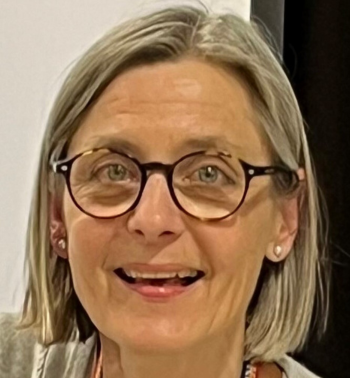19 May 2025
What is your role within King’s Health Partners?
I worked as a Consultant Psychologist at South London and Maudsley NHS Foundation Trust (FT) until January 2024. Some people think I retired then, but that is not so! I remain linked to the Trust’s eating disorders service for young people, and am a Visiting Senior Lecturer at King’s College London’s Institute of Psychiatry, Psychology & Neuroscience.
I work in the field of feeding and eating disorders, specialising in clinical work and research with young people with eating disorders and their families. More recently, I have been focusing on Avoidant Restrictive Food Intake Disorder – usually known as ARFID – and on improving support for autistic young people with eating disorders.
What do you enjoy most about your role?
ARFID is a less well-known type of eating disorder and South London and Maudsley NHS FT has been a trailblazer in driving forward knowledge, understanding and the development of services for young people with this condition. It is a real privilege to be able to play a key role in working towards improving the support and care we can offer young people and their families.
I am always impressed by the generosity and input of so many people with lived experience, who share their experiences and perspectives to help others. The responsibility of acting on what they are saying is one that I embrace.
What inspired you to get into this work?
I first became interested in eating disorders working as a therapeutic care worker in a children’s in-patient unit before I did my clinical training. I was intrigued but also horrified by what I experienced as restrictive treatment - this was back in the 1980s - and decided I needed to find out more.
I remember having conversations with the unit consultant and challenging him about the scientific basis for his practice. Looking back, that seems quite bold! He agreed that there were knowledge gaps and possible alternative approaches. I did a PhD on the subject and haven’t looked back.
How does your work impact the lives of patients and communities?
I have been lucky in being able to make some important contributions. I played an active role in the revision of the eating disorders diagnostic criteria in ICD-11 and DSM-5 and was part of the group responsible for the introduction of ARFID. This was intended to stimulate much-needed research and drive forward evidence-based treatment, so very much about making a meaningful impact.
Together with South London and Maudsley NHS FT national and specialist CAMHS (Child and Adolescent Mental Health Services) colleagues I have also delivered national training programmes to hundreds of colleagues in all parts of the country. This, alongside my own research and clinical practice, has meant I can influence positive change.
What are the benefits of working in partnership?
Clinical research is my passion. Clinicians need the information and evidence from the careful work of researchers, and researchers need input from thoughtful clinicians about questions that need answering. However, the key partners in my view are people with lived experience. Without the input of our young people and their families, about what they need, their priorities, values and experiences, our work can be limited in meaning and relevance. Good links between clinical and academic partners are vital to properly serving those who require our support. Also, working in close partnership with managers means that things can happen!
What would be your one career top tip?
As a clinician researcher my top tip is always listen carefully to the people you are working with. I am committed to driving forward person-centred evidence-based care that is easily accessible and delivered in a timely manner. I believe I have been able to make positive contributions largely because of what I have learned from meeting so many individuals and families and hearing and reflecting on their stories. Our views about what may be needed clinically or in research may not be the best avenues to pursue if we truly want to improve our knowledge and the quality of our support.





